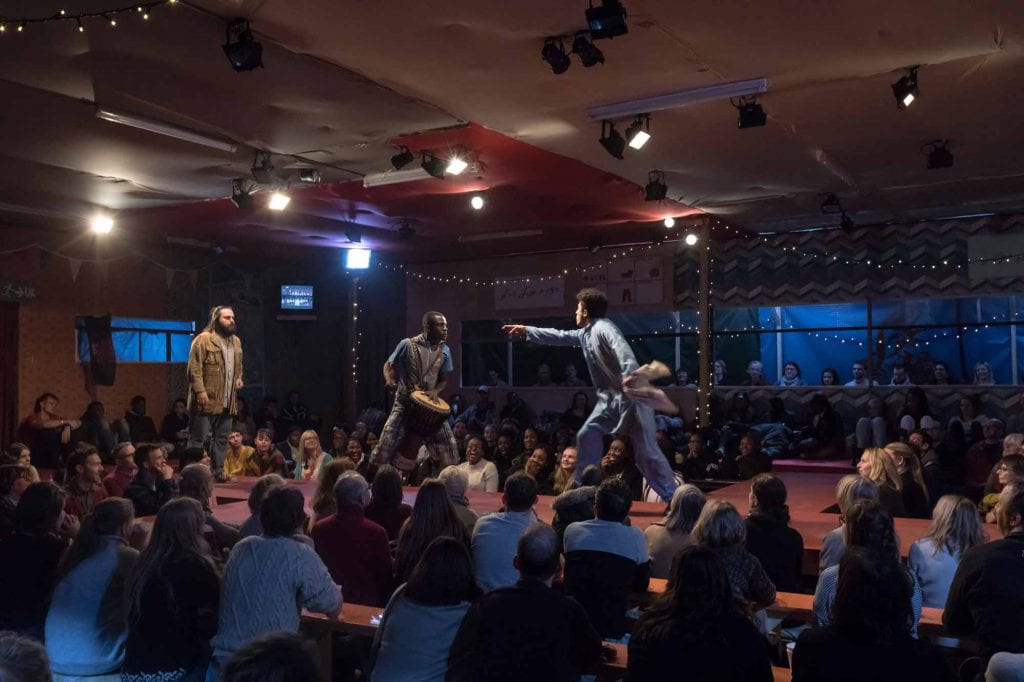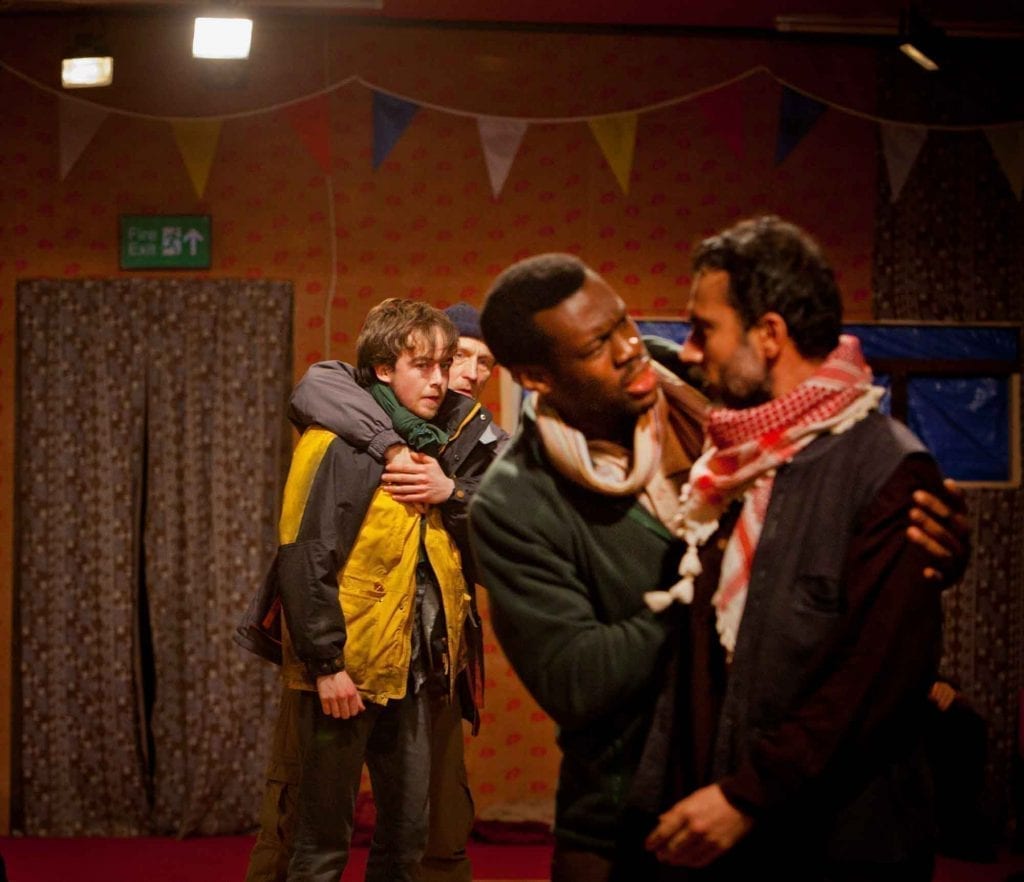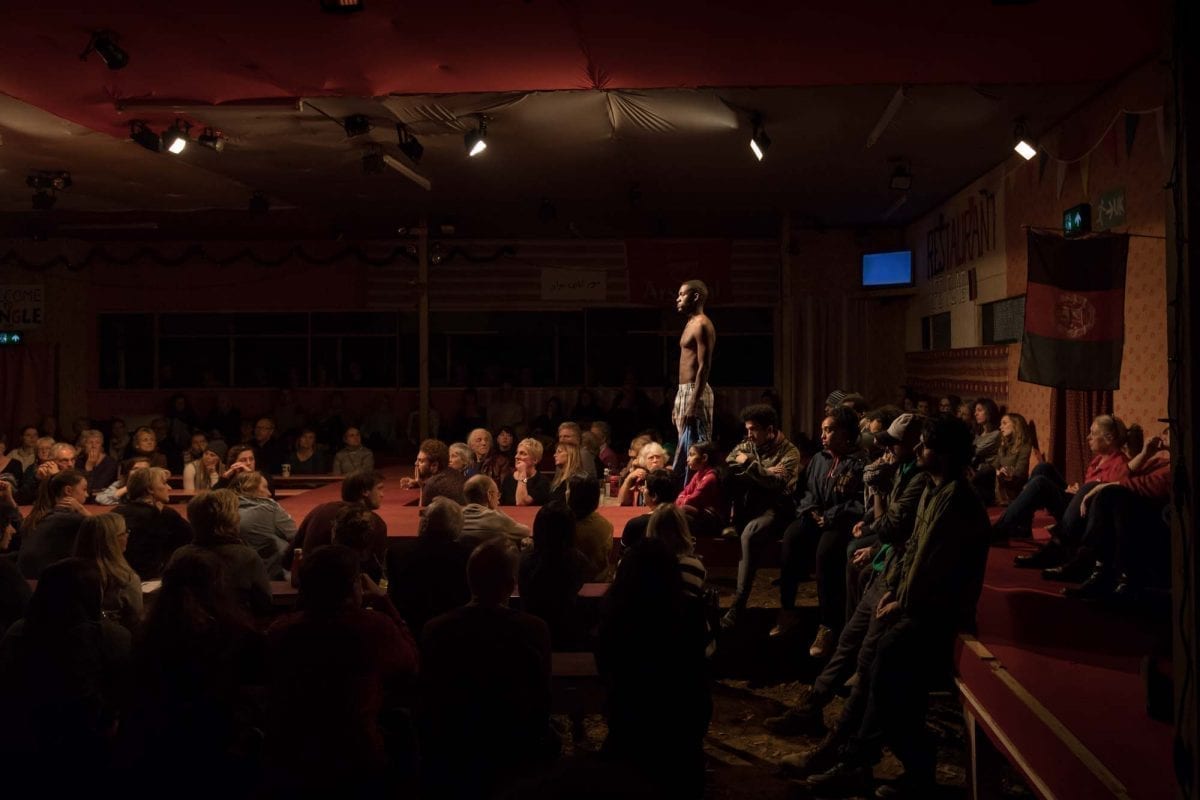The Jungle is a remarkable theatrical experience that I will not forget for years to come. It charts the experiences of refugees in the Calais camp, using Iranian refugee Safi (Ammar Haj Ahmad) as a vehicle through which to experience all parts of the camp; the families, the friendships, the loss, the internal divisions, the hope. It is an account of human perseverance and solidarity, its celebration of life as equally infectious as its dark turns are immediately grounding. It is vibrant, heart-breaking, and galvanising; a production that reminds us of the political power of theatre.

The Jungle is named after the nickname of the Calais refugee camp, ‘jungle’, which derives from the Pashto ‘dzhangal’, meaning ‘forest’. Salar (Ben Turner), an Afghani refugee well-respected by the community, laments in the chaotic throes of Act 1 that the world “sees us as animals already”. The camp was forcibly destroyed in October 2016, displacing approximately 6,000-10,000 refugees, with 1,290 being unaccompanied minors (estimated by French charity Terre d’Asile in October 2016). But The Jungle does not allow refugee stories to go unheard; by collaborating with Good Chance Theatre which was established in the camp in 2015, The Jungle places refugee stories at the heart of the play, humanising the dehumanised; giving a voice to the dismissed.
The Jungle opens with a British volunteer announcing that the police intend to destroy the southern half of the camp with a ‘soft eviction’. With barely a moment to process the impending destruction, the police enter with a formidable force that paints a picture of the chaos and instability which rule the camp. Fear and helplessness are so expertly drawn by directors Stephen Daldry and Justin Martin, mercilessly drawing the audience into the fickle world of the camp. The non-linear structure of the play then explores the weeks and months leading up to the eviction, making it all the more disturbing.
The set is one of the most memorable aspects of the production. The Young Vic main theatre is transformed into the Afghan Café which was a popular staple of life in the Calais camp. Since the camp naturally formed ethnic communities which lived in certain areas of the camp, the seating is split into groups such as Iran, Iraq, Sudan which are on the benches on the periphery of the Café, with Afghanistan (one of the largest ethnic groups) occupying the benches of the Café itself. It is immersive, with actors offering food and drink during party scenes and addressing the audience during personal accounts of refuge and escape.
Although the production primarily focuses on six refugees and volunteers, the production does not exist in isolation; it draws upon current affairs to explain how life in the camp changed. For example, the company addressed the November 13th Paris terror attack, explaining how they became scapegoats whilst also holding up self-made ‘Pray 4 Paris’ posters. A memorable moment which reminds the audience of the power of media and political isolation.

The play is not without its levity, however. Moments of heart-warming solidarity are interspersed throughout the production, charging the audience with a spirit of community and hope. One such of these moments was when Safi, the audience’s guide, toured the camp and as introduction, each ethnic group offered a song; an Iranian love song, a Sundanese condemnation of police brutality. The melodies melt into each other in a celebration of cultural difference and solidarity.
Acting performances which especially stood out are: Mohammed Amiri’s utterly convincing, endearing, and humorous performance of the loveable and sometimes frustrating young Norullah, and Alex Lawther’s measured and precise performance of the up-tight but brave British volunteer Sam. Special note, however, must go to Salar, portrayed by the enigmatic, powerful, layered Ben Turner. A stellar performance.
The Jungle is a uniquely spectacular production. It carries the spirit of representation, diversity, and the hope for change which is at the helm of the Young Vic. It is the most politically pertinent production of 2017, delivered with delicacy, sensitivity, and bravery.

